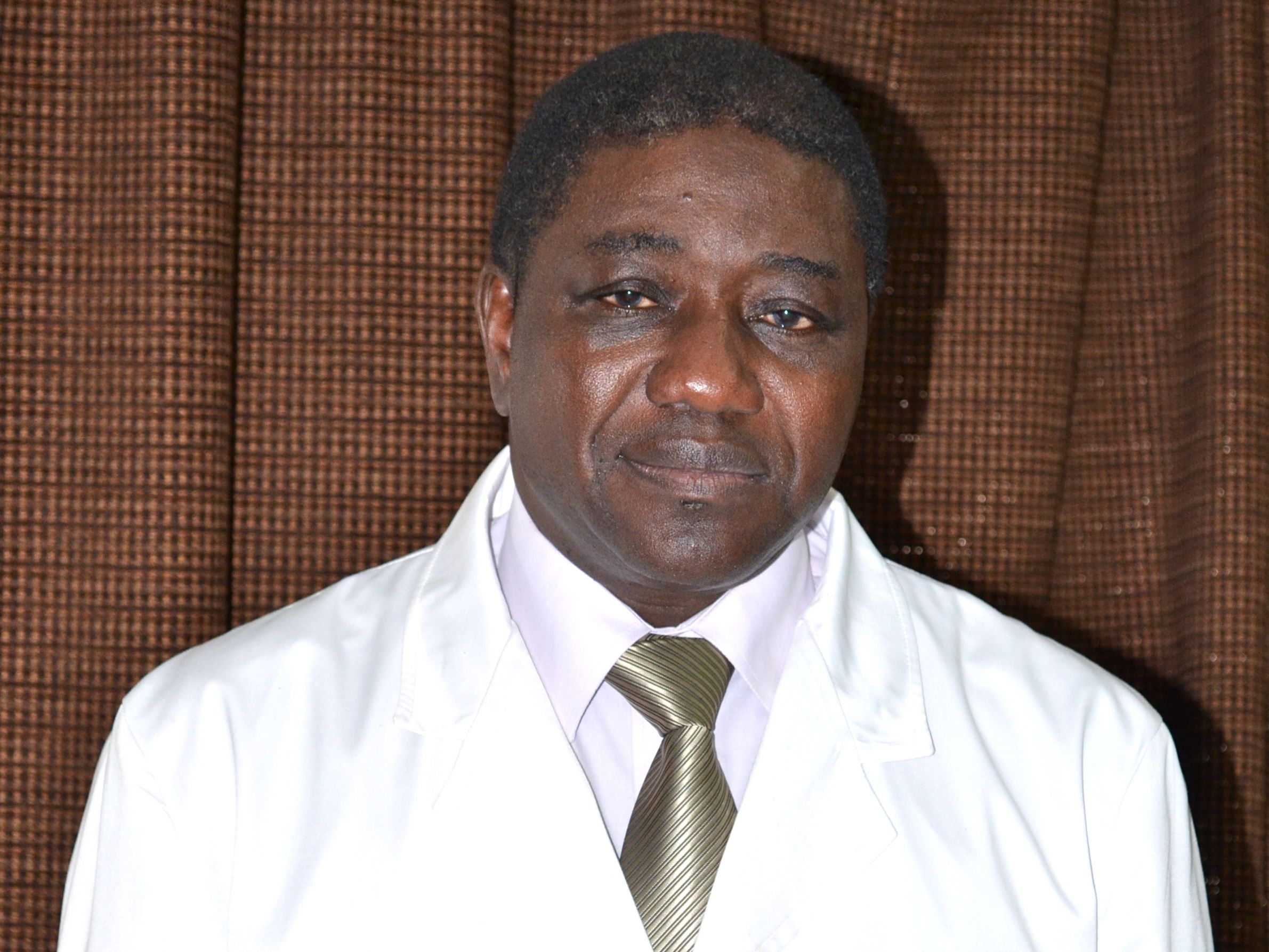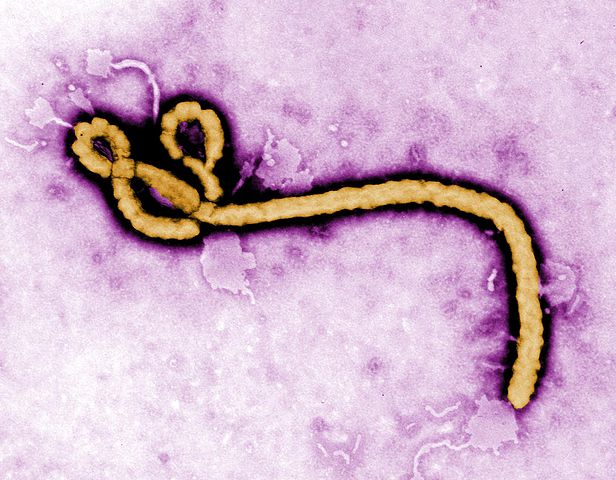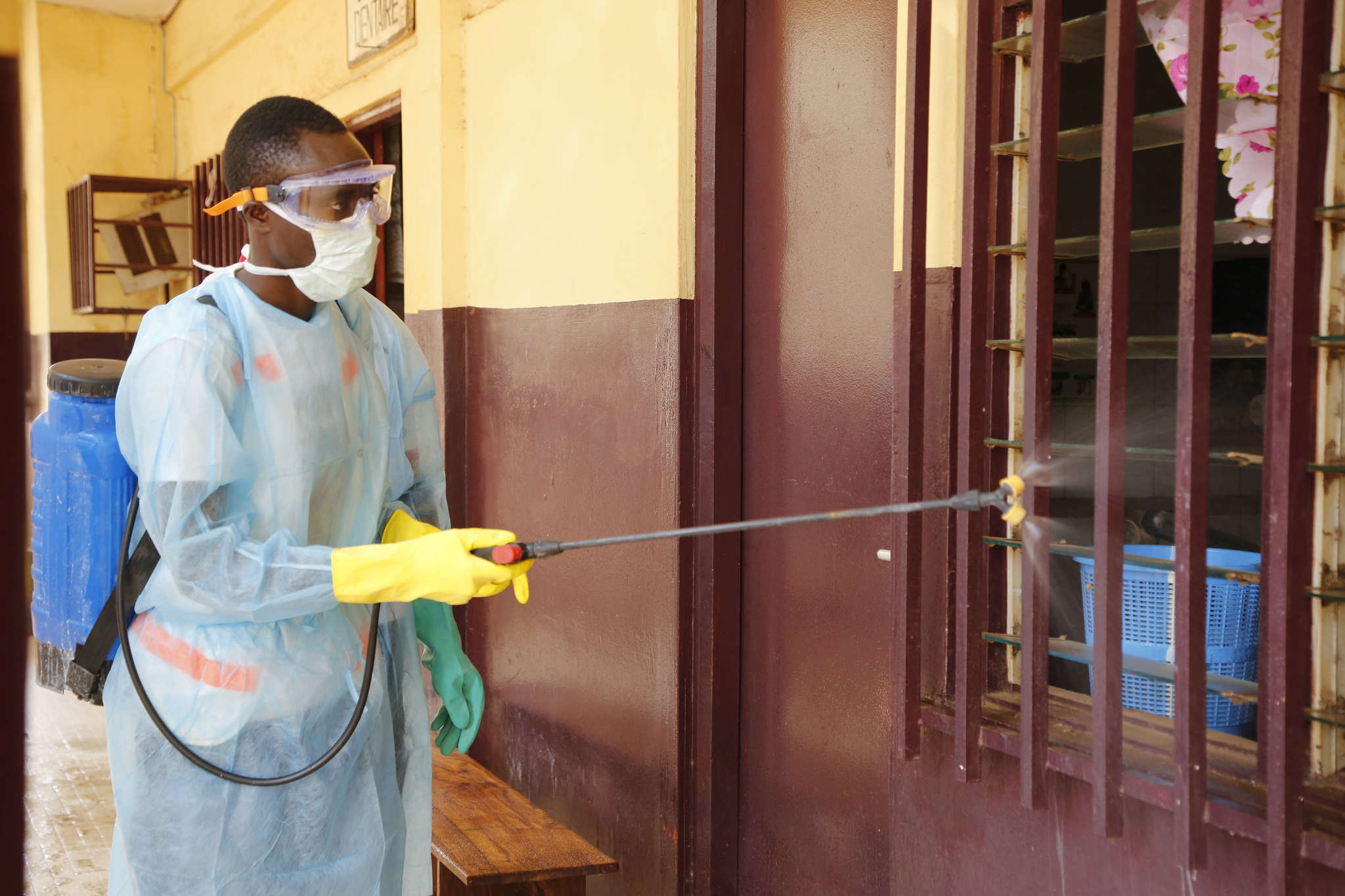The scariest scenario comes from the US Centers for Disease Control and Prevention: By January 2015, two of the African countries that have been massively affected by Ebola – Liberia and Sierra Leone – could potentially witness some 550,000 to 1.4 million new cases if proper measures are not taken or a cure fo und.
und.
It comes as no surprise that Ebola's numbers are alarming: Since the first casualty reported early December 2013 in Guinea, more than 17,000 people have been infected, and more than 6,000 have died in 12 months as of 30 November. That is why the World Health Organization (WHO) is calling Ebola "one of the world's most virulent (infectious) diseases."
Virologist Souleymane Mboup, a TWAS Fellow based in Senegal, sees additional cause for concern. When the outbreak first emerged, the international response was "slow and timid", he said in an interview. Damage to economies in the most hard-hit countries is compounding the human tragedy. Countries troubled by poverty or civil conflict could be hard-pressed to mount an effective response. And in his view, the threat that terrorists could use the virus as a weapon "should be taken seriously".
Mboup has extensive experience in the monitoring of epidemics and infectious outbreaks. He is the founding member and chairman of the West and Central African AIDS Research Network. Through many years of investigation, Mboup paved the way to identification of HIV-2 in Senegal and has given valuable contributions in malaria and tuberculosis research. His laboratory is a reference center for UNAIDS and WHO, and it is a regional training center where each year about 30 African researchers are educated in laboratory techniques and the monitoring of patients under antiretroviral treatment.
Now he is looking at Ebola's outbreak with great concern, because Ebola is no longer a disease unique to Africa. Only a coordinated and systemic global response will be key to its control and eradication, he says.
Even if Ebola is not graded among the most contagious viruses – it cannot be transmitted through the air as it is the case of measles or influenza – it exhibits an unusually high infective capacity: as little as one viral particle can trigger the disease.
Because of Mboup's experience and broad knowledge of infectious disease and treatment in West Africa, TWAS staff writer Cristina Serr a interviewed him by email about the lessons of the current Ebola outbreak across Guinea, Liberia, Sierra Leone and other nations. He has a very precise opinion: we must take the best out of a tragedy by learning from it.
a interviewed him by email about the lessons of the current Ebola outbreak across Guinea, Liberia, Sierra Leone and other nations. He has a very precise opinion: we must take the best out of a tragedy by learning from it.
Professor Mboup, what lesson should we learn from the Ebola outbreak in terms of management of the infection?
We can certainly say that, in the event of future outbreaks, great emphasis must be placed on disease surveillance and control, improved international preparedness, and on continued research to identify better treatment regimens and vaccines in time of no emergency.
The current Ebola outbreak has been the largest in history. Ebola virus is primarily spread through direct contact body fluids (blood, vomit, mucus) from an infected person or contaminated needles and syringes, and through contact with infected animals (bats, monkeys, apes). Airborne transmission of Ebola virus is a concern, but to date it has not been demonstrated in humans, and it is highly unlikely. Most of the reported cases are those who lived with, cared for, or were otherwise in direct contact with bodily fluids of an infected patient.
Do poorer nations have the capacity to deal with this virus?
The course of the infection has heightened the need for coordinated support, both from countries neighboring the epidemics and from the international community at large. Countries that have a well-functioning public health care and surveillance system – such as Uganda, Nigeria and Senegal – have shown that the outbreak can be rapidly contained to avoid widespread epidemics of the disease. But in other neighboring developing countries, lack of appropriate infrastructure and resources, and political instability, have made efforts to contain the spread of Ebola increasingly difficult. This is where efforts must focus.
Should we pay attention to nations with political instability as potential cradles of new epidemics?
Political instability and civil war are a major concern and can hinder efforts to contain the spread of disease. Developing countries, in particular those that are prone to political instability, need to do more to improve their ability to detect and curb potential outbreaks. However, as many governments have been slow to respond and address these issues, the potential for continued spread of Ebola and other diseases within these nations is a growing concern. Hence, the importance of international preparedness and coordinated epidemic-response efforts across borders and countries alike. Global health diplomacy is critical to provide support for the development of more systematic and proactive approaches to identify and better understand existing and future threats impacting global public health. The control of outbreaks like Ebola and other major infectious disease requires regional and international collaboration.
Should we be worried about terrorists using this virus for a terror attack?
The idea that Ebola could be used as a weapon of terror is a growing concern, and one that should be taken seriously. Though many experts suggest these fears are largely unfounded, as the virus would be very difficult to grow and weaponize. The international community will need to continue to monitor this potential threat. The current Ebola outbreak in West Africa has renewed the importance of international preparedness and coordinated epidemic response efforts across borders and countries alike.

What should the role of the international community be in the case of an outbreak? Has the international community fulfilled those obligations in the current Ebola outbreak?
To deal with these outbreaks, most of the countries affected by the disease need technical and financial support from the international community. But more needs to be done, in particular from more developed countries. We have seen recently a slow and timid early response when the disease first appeared in some of the West African countries. However, the disease’s quick spread has raised more awareness about the need for consolidated efforts from the international community to help contain the virus. The international community has also a role in advancing research to identify new drugs (such as antiviral medications) to effectively treat, as well as new vaccines to prevent, the spread of this and other diseases. This will help resolve and prevent future outbreaks.
Ebola virus can be in a dormant state before an outbreak. Should African nations establish a permanent office and permanent educational initiatives aimed at informing and preparing the population?
Yes, there is a clear need to enact educational initiatives and response teams to be better prepared for potential outbreaks, provide technical assistance, and support continued delivery of safe and high-quality health services to our more vulnerable populations.
It is well known that the virus can lie dormant in the body before symptoms emerge. Generally symptoms appear anytime from two to 21 days after exposure (eight-ten days is most common).
Healthcare workers (nurses, midwives, and others) are on the frontline and play such a critical role in management of patient care. We need to be prepared in order to support them and ensure they are appropriately trained, and provided with education and resources to ensure infection control and prevention.
Should international health organizations set up specific programmes to build international cooperation? For example, increase the number of health attachés and trained staff, and provide more of the proper equipment?
In our increasingly global community, Ebola is no longer a disease unique to Africa, and thus an international response is essential to control further spread of this disease. The Ebola outbreak has raised awareness on the need for more effective quarantine measures, surveillance, and tracking procedures, in particular in developing countries. International health organizations such as WHO have and continue to play an important role in a combating this disease. WHO recently issued a roadmap for scaled-up response to the Ebola outbreak, with the goal to stop Ebola transmission in affected countries within six to nine months, and to contain and prevent the spread of the virus to neighboring countries and communities. Efforts like these, along with continued disease surveillance and training, are greatly needed.
Local and religious habits – for example, funeral ceremonies or burial rituals – are a potential additional source of spreading infection. Should we ask people to change their habits, or keep them under tight control?
Religious ceremonies and funerals are an important aspect of our culture. Bathing rituals involving the washing corpses of loved ones in preparation for burial is commonplace, and a long-standing tradition, in particular within the Muslim community. But as we know, in the wake of Ebola washing the bodies of our dead can introduce great risk for the continued spread of the virus. Thus it is important that we educate our people on the risks associated with these practices so that better safety measures can be employed.
Should organisations such as TWAS, the InterAcademy Medical Panel (IAMP) and IAP, the global network of science academies, have a proactive role during epidemic outbreaks? If so, what role do you envisage?
Science academies are not only distinguished learned societies; they are centers of innovative production that generate cutting-edge solutions. They have to interact with scientific organizations, the international community and policy-makers in order to have the voice of science heard at the national and international level.
May we say that Ebola epidemic is not just a medical crisis, but also an economic crisis? That it is going to impact farmers, local markets, and broader economies in a domino effect?
In developed countries, potential Ebola outbreaks can be contained more easily. But in more densely populated areas of developing countries, with poor or lacking health-care infrastructure, there are greater implications for the spread of the virus. A single infected person could easily trigger an epidemic. Ebola is truly both a medical and economic crisis, which has not only claimed many lives but also had a devastating impact on the economies of those countries most impacted by the disease. The agricultural sector has been most impacted, as the majority of the workers in these countries are farmers. The growing fear of the disease has also had a devastating impact on tourism in Africa, and as we know, many local economies depend on tourism for survival.
Cristina Serra

